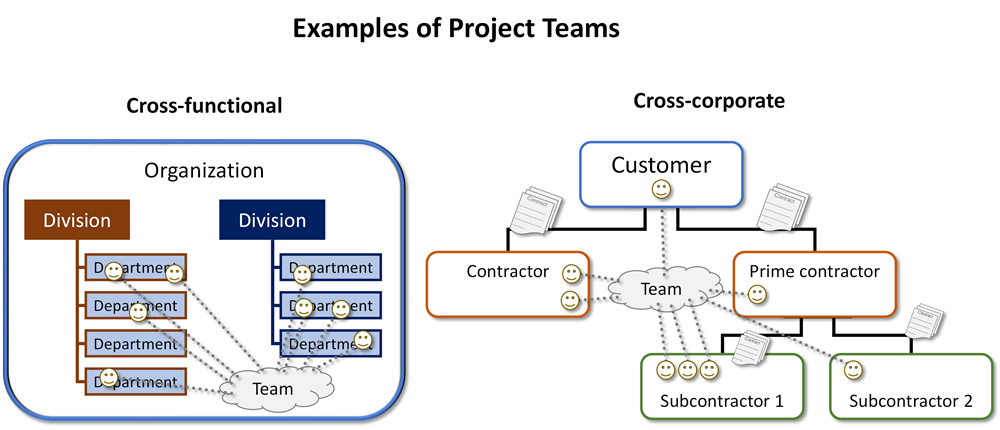Project Business Management
SERIES ARTICLE
By Oliver F. Lehmann
Munich, Germany
“I admire Picasso. He sold his oil more expensive than anyone else.”
Unknown

Summary
Project Business with clients and contractors comes with specific challenges for all professionals involved. They need a good understanding of project management, but also of commercial and legal matters in order to make the project satisfactory for the organizations and individuals involved.
More education is necessary to prepare even experienced project managers for these challenges. At the moment, most project managers learn Project Business Management through trial and error.
However, trial in project business is expensive, and error even more.
Liquidity
It is autumn 2019 while I am writing this article, and attentive readers of business press find the topic of liquidity addressed in many places:
- On 23 September, UK’s oldest provider of package holidays went into insolvency after 178 years of operation. British travel firm Thomas Cook had failed to fully refinance huge debts and went out of business, forsaking 150,000 tourists, Britons and people from other nationalities, stranded in holiday destinations, sending several thousand employees into unemployment, and leaving an unknown number of invoices from business partners unpaid[1].
- On the same day, a scathing letter became public by Ola Källenius, the CEO of German Mercedes-Benz car maker Daimler AG. In this letter, Mr. Källenius criticized the losses of the group, which added up to 4.2 billion Euros, and called for the protection of the “financial solidity”, which he called a “life vein of the corporation[2].
- Automotive again, same day. South China Morning Post reported that during the second quarter of 2019, the Chinese maker of electric cars NIO burned 2.6 billion yuan (US$4 million) a day. Their cumulative losses since their foundation 5 years ago are reported at US$5.7 billion. The company, according to the article, hopes for an infusion of 10 billion yuan by an investor, however given its reported rate of burning money, this would just help the company to survive another four days.
- One month earlier, in August, India Business Law Journal wrote that “More action needed to ease contractors’ liquidity crisis”. Blaming unresolved disputes and insufficient performance of contractors in infrastructure and construction projects as the culprit, the article describes how an entire national industry suffers from losses and late payments.[3]
- US aircraft manufacturer Boeing may currently also be much more in liquidity troubles than what is communicated in public. The corporation had a stock buy-back program over US$20 billion in 2018 and are about to invest US$4.75 billion in buying Brazilian Embraer, a manufacturer of small commercial aircraft. Since March 2019, their most promising model, the Boeing 737 MAX has been grounded by aviation regulators around the world, and newly built aircraft are stockpiling and cannot be delivered. Already delivered aircraft have also been grounded, and their operators already began charging the costs of the grounding to Boeing. According to IBA Group, the costs of grounding are at about US$150,000 – per aircraft and per day.[4] At the same time, sales of Boeing aircraft are slumping[5]. Boeing is still a darling of investors, due to its large backlog of orders from the last years to be fulfilled and its second business in military, however this may finally prove to be a temporary relieve only.
The majority of the examples above are not from project management, however, they show the crucial significance of liquidity for any company’s survival. Most companies need to live from the earnings made from the business they do. The examples also show that the matter is not specific to an industry, or a certain country culture, it is a universal issue for every business anywhere in the world.
Such as project business.
Project Business
Project business takes place, when organizations come together to do one or more projects. These projects are no more just cross-functional, they are cross-organizational.

Figure 1: Cross-functional projects are performed inside the protective walls of a performing organization. Cross-corporate project span over several organizations.
Project Business Management (PBM) brings together project management and business management. However, it is different in its lack of experts who are qualified to help organizations do better projects with paying customers on one side and successful contractors on the other.
More…
To read entire article, click here
Editor’s note: This series of articles is by Oliver Lehmann, author of the book “Project Business Management” (ISBN 9781138197503), published by Auerbach / Taylor & Francis in 2018. See author profile below.
How to cite this article: Lehmann, O. (2019). Taking Care of (Project) Business; Series on Project Business Management; PM World Journal, Vol. VIII, Issue IX, October. Available online at https://pmworldlibrary.net/wp-content/uploads/2019/10/pmwj86-Oct2019-Lehmann-Taking-Care-of-Business.pdf
About the Author

Oliver F. Lehmann
Munich, Germany
![]()
Oliver F. Lehmann, MSc., PMP, is a project management author, consultant, speaker and teacher. He studied Linguistics, Literature and History at the University of Stuttgart and Project Management at the University of Liverpool, UK, where he holds a Master of Science Degree. Oliver has trained thousands of project managers in Europe, USA and Asia in methodological project management with a focus on certification preparation. In addition, he is a visiting lecturer at the Technical University of Munich.
He has been a member and volunteer at PMI, the Project Management Institute, since 1998, and served five years as the President of the PMI Southern Germany Chapter until April 2018. Between 2004 and 2006, he contributed to PMI’s PM Network magazine, for which he provided a monthly editorial on page 1 called “Launch”, analyzing troubled projects around the world.
Oliver believes in three driving forces for personal improvement in project management: formal learning, experience and observations. He resides in Munich, Bavaria, Germany and can be contacted at oliver@oliverlehmann.com.
Oliver Lehmann is the author of “Situational Project Management: The Dynamics of Success and Failure” (ISBN 9781498722612), published by Auerbach / Taylor & Francis in 2016 and of “Project Business Management” (ISBN 9781138197503), published by Auerbach / Taylor & Francis in 2018.
To view other works by Oliver Lehmann, visit his author showcase in the PM World Library at https://pmworldlibrary.net/authors/oliver-f-lehmann/
[1] (Collinson, 2019)
[2] (Köster, 2019)
[3] (Negi & Kumar, 2019)
[4] (Whybrow, 2019)
[5] (Johnsson & Kochkodin, 2019)









